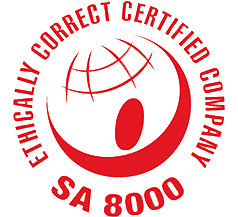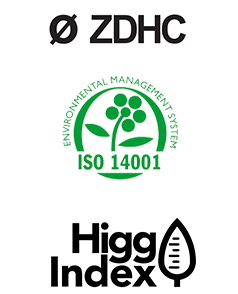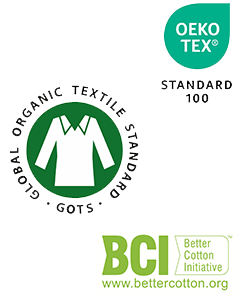Sustainability
Sustainability
Sustainability in the textile industry refers to the adoption of practices and processes that minimize the negative environmental and social impacts associated with textile production, manufacturing, and consumption. It encompasses various aspects, including raw material sourcing, production methods, waste management, and ethical considerations throughout the supply chain.Here are some key areas where sustainability initiatives are being implemented by us:
Labor Rights and Fair Working Conditions
Ensuring fair wages, safe working conditions, reasonable working hours, and the right to collective bargaining for garment workers. Implementing policies that prevent child labor, forced labor, and discrimination in the workplace.

Environmental Sustainability
Implementing measures to minimize the environmental impact of garment production, such as reducing water and energy consumption, adopting eco-friendly manufacturing processes, promoting recycling and waste management, and using sustainable materials. Implementing cleaner and more efficient production methods, such as using eco-friendly dyes and chemicals, reducing water and energy consumption, and implementing recycling and waste management systems which helps minimize pollution and resource depletion. We practice recycling programs and the incorporation of recycled materials into new products which reduces waste and conserves resources.

Ethical Sourcing and Responsible Purchasing
Ensuring that suppliers and contractors adhere to social and environmental standards. Supporting fair trade and sustainable sourcing practices by working with certified suppliers and promoting responsible purchasing decisions. By implementing certifications like Fair Trade and Global Organic Textile Standard (GOTS) we provide assurance of ethical and sustainable practices. Promoting transparency and traceability in the supply chain to identify and address any unethical practices, such as substandard working conditions or environmental violations. This includes collaborating with suppliers, conducting audits, and engaging in responsible sourcing practices.

Community Service & Engagement
Engaging with local communities by supporting social and educational programs, providing vocational training, and contributing to local development initiatives. This includes initiatives to empower women and marginalized groups within the communities. We take pride in the fact that women comprise over 90% of our total workforce, who we invite from the local villages to come and train at our very own training centers. They are then free to work at our units or elsewhere in the industry.

Product Safety and Consumer Protection
Ensuring product safety and compliance with relevant regulations and standards to protect consumers. Communicating product information transparently, including the materials used, manufacturing processes, and potential risks associated with garment products.

